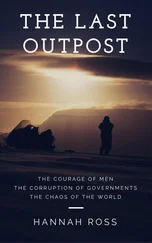This, however, is perfectly possible for the upper classes, though often at the cost of considerable sacrifice. People are perfectly right in saying that soon in New York only the very poor and the very rich will be able to live. Almost all the white residents who can do so send their children either to private schools, which are often very good, or to the principally Catholic denominational schools. Negroes belonging to the upper levels can also do this. The working class cannot, nor can the lower middle class. What makes these people especially bitter is that the middle-class liberals have put through laws whose consequences they do not feel. They demand integration of the public schools, elimination of neighborhood schools (black children, who in large measure are simply left to neglect, are transported in buses out of the slums into schools in predominantly white neighborhoods), forced integration of neighborhoods—and send their own children to private schools and move to the suburbs, something that only those at a certain income level can afford.
To this another factor is added, which is present in other countries as well. Marx may have said that the proletarian has no country; it is well known that the proletarians have never shared this point of view. The lower social classes are especially susceptible to nationalism, chauvinism, and imperialistic policies. One serious split in the civil rights movement into “black” and “white” came as a result of the war question: the white students coming from good middle-class homes at once joined the opposition, in contrast to the Negroes, whose leaders were very slow in making up their minds to demonstrate against the war in Vietnam. This was true even of Martin Luther King. The fact that the army gives the lower social classes certain opportunities for education and vocational training naturally also plays a role here.
REIF:You reproach the New Left in West Germany with, among other things, having never “concerned itself seriously with the recognition of the Oder-Neisse Line, [§] At the time of this interview, the Oder-Neisse Line was the border between the German Democratic Republic and Poland. It was established by the Potsdam Agreement of 1945 between the United States, the United Kingdom, and the Soviet Union, which resulted in Poland encompassing territories that, before the war, had been part of Germany. West German politicians refused to recognize the Oder-Neisse Line until 1970, though East Germany had confirmed it in 1950.
which, after all, is one of the crucial issues of German foreign policy and has been the touchstone of German nationalism ever since the defeat of the Hitler regime.” I doubt that your thesis can be maintained in this uncompromising form, for the German New Left is also urging the recognition, not only of the Oder-Neisse Line by Bonn, but of the German Democratic Republic as well. However, the New Left is isolated from the general population, and it is not within its power to give practical political reality to such theoretical demands. But even if the numerically extremely weak New Left were to intervene “seriously” for the recognition of the Oder-Neisse Line would German nationalism thereby suffer a decisive defeat?
ARENDT:As far as practical political consequences are concerned, a change of policies in Persia [‖] Arendt is referring here to the increasingly autocratic policies of Shah Mohammed Reza Pahlavi. When the shah traveled to Germany on an official visit in 1967, German students demonstrated against what they saw as their government’s complicity with an oppressive regime.
was certainly even less likely. The trouble with the New Left is that it obviously cares about nothing less than eventual consequences of its demonstrations. In contrast to the shah of Persia, the Oder-Neisse Line is a matter of direct responsibility for every German citizen; to demonstrate for its recognition and to go on record on this issue make sense regardless of practical political consequences. It proves nothing whatsoever if the New Left comes out “also” for the recognition of the new boundary with Poland—as many good liberal Germans have done. The point is that this issue has never been at the center of their propaganda, which means simply that they dodge all matters that are real and involve direct responsibility. This is true of their theories as well as of their practices.
There are two possible explanations for this shirking of an eminently practical issue. I have so far mentioned only German nationalism, of which, all rhetoric to the contrary notwithstanding, one might also suspect the New Left. The second possibility would be that this movement in its German version has indulged in so much high-flown theoretical nonsense that it cannot see what is in front of its nose. This seems to have been the case at the time of the Notstandsgesetze. [a] The Notstandsgesetze —Emergency Laws—were passed in West Germany in May 1968. They allowed the government to curtail some constitutional rights during a crisis.
You remember how late the student movement was in becoming aware that something of considerable importance was happening in Parliament, certainly of greater importance for Germany than the visit of oriental potentates.
When the American students demonstrate against the war in Vietnam, they are demonstrating against a policy of immediate interest to their country and to themselves. When the German students do the same, it is pretty much as with the shah of Persia; there is not the slightest possibility of their being personally held to account. Passionate interest in international affairs in which no risk and no responsibility are involved has often been a cloak to hide down-to-earth national interests; in politics, idealism is frequently no more than an excuse for not recognizing unpleasant realities. Idealism can be a form of evading reality altogether, and this, I think, is much more likely the case here. The New Left simply overlooked the issue, and that means it overlooked the single moral question that, in postwar Germany, was still really open and subject to debate. And it also overlooked one of the few decisive international political issues in which Germany would have been able to play a significant role after the end of World War II. The failure of the German government, especially under Adenauer, [b] Konrad Adenauer, chancellor of West Germany from 1949 to 1963.
to recognize the Oder-Neisse Line in time has contributed a great deal to the consolidation of the Soviet satellite system. It ought to be perfectly clear to everyone that fear of Germany on the part of the satellite nations has decisively slowed down, and in part rendered impossible, all reform movements in Eastern Europe. The fact that not even the Left, New or Old, dared to touch this most sensitive point of postwar Germany could only strengthen considerably this fear.
REIF:To come back once more to your study On Violence: in it (that is, in its German version) you write: “So long as national independence, namely, freedom from foreign rule, and the sovereignty of the state, namely, the claim to unchecked and unlimited power in foreign affairs, are identified—and no revolution has thus far been able to shake this state concept—not even a theoretical solution of the problem of war, on which depends not so much the future of mankind as the question of whether mankind will have a future, is so much as conceivable, and a guaranteed peace on earth is as utopian as the squaring of the circle.” What other conception of the state do you have in mind?
ARENDT:What I have in mind is not so much a different state concept as the necessity of changing this one. What we call the “state” is not much older than the fifteenth and sixteenth centuries, and the same thing is true of the concept of sovereignty. Sovereignty means, among other things, that conflicts of an international character can ultimately be settled only by war; there is no other last resort. Today, however, war—quite apart from all pacifist considerations—among the great powers has become impossible owing to the monstrous development of the means of violence. And so the question arises: What is to take the place of this last resort?
Читать дальше












